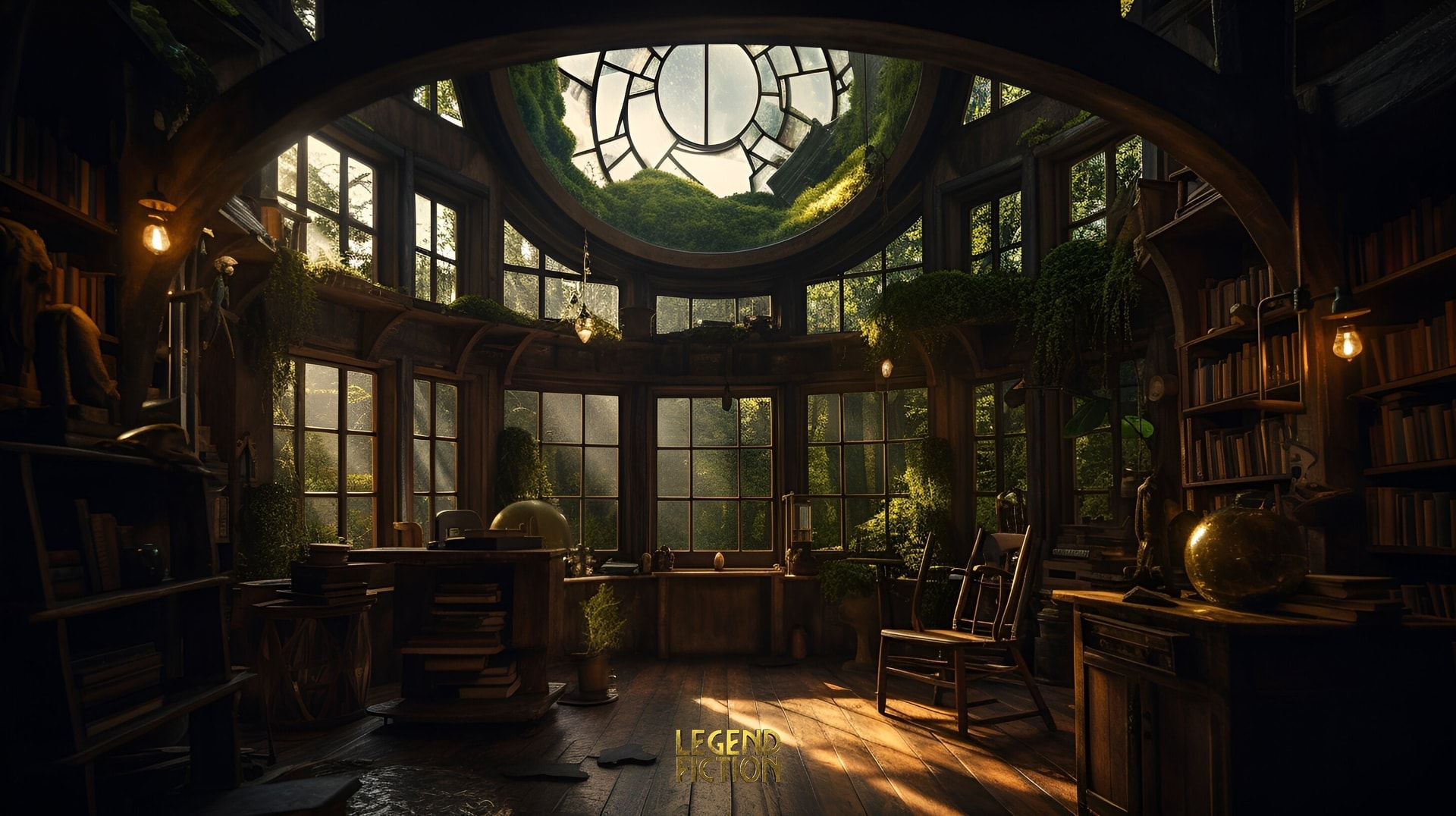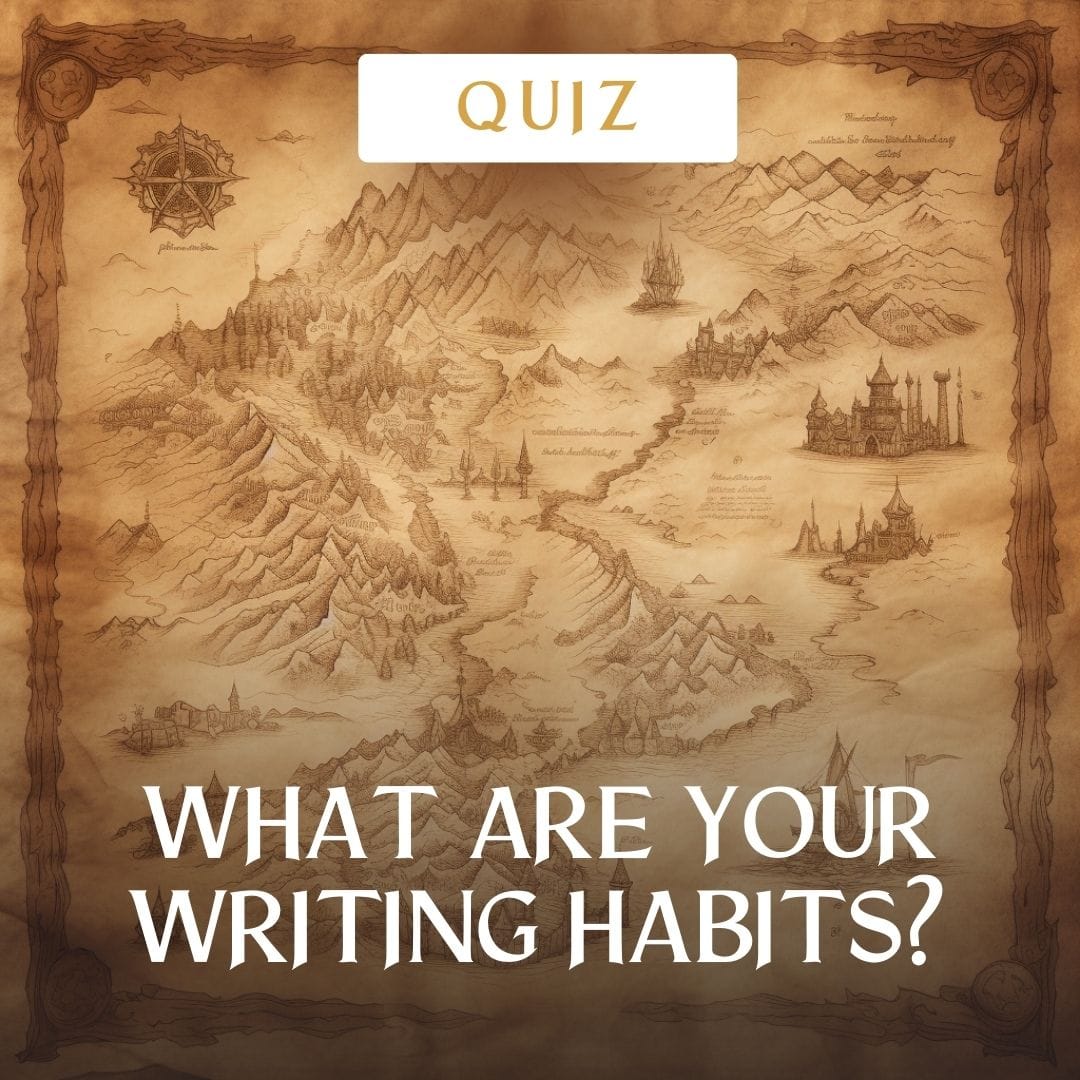Imagine a world where imagination thrives, and children can challenge themselves with reality to dream the kinds of dreams that actually builds a future we want to live in.
For many children, that kind of imagination doesn’t exist. It’s like a muscle that’s atrophied. Most of modern culture kills off imagination, and people can’t dream any more. The best the average child can do is drown themselves in feeds and movies to have fun. But that’s a massive problem.
You see, imagination is not just something that happens inside our mind, or inside the dome of our skulls. We’re all faithful people here, which means we believe in things that we can’t touch. We live in a world dense with angels and thick with spiritual forces, as real as gravity and light. Our imaginations are one critical tool that we all need, because imagination helps us see the world.
If you don’t have any imagination at all, you don’t know what you see. You don’t know how to see inside of a thing, to know what it means. You can’t take things apart or build things together in your mind to understand something new. And for many children today, everything is done for them. For these kids, they never get a chance to just sit in front of a thing in a state of boredom. And out of that boredom, that silence, the thing reveals itself, and we begin to see what a thing, or a person is, on their own terms.
That takes imagination, and it’s a basic human activity.
Now some of our children have hyper-active imaginations, fritzing everywhere. But some of us are creative with it. Like alchemists, or magicians, they’re developing an ability to see deeply into things and people. They can’t help it. They love it. And they turn it into stories.
I believe that our story tellers are the dreamers who build our future. Storytellers are as important as priests and homemakers. Stories give us all missions and identities. I don’t know who I am without the story of my life, of my people, of my country. I don’t know what to start doing with my work or my life unless I have a story that gives me direction.
Humans are narrative creatures. Take the narrative away, and the hope dies. Take away the reason for all of our genius and effort and our capacity to love, and we just stop. We need a goal, and we love to see others challenge themselves to reach their goals.
But it doesn’t end there.

Storytellers in every generation have a vital mission, and Christian storytellers have an even more important one. Our mission as humans, in every era, is to translate the Gospel into the words and thoughts of the people of our time. To take the timeless truths, and re-clothe them in the themes and ideas that people will ‘get’ today.
These stories may not last forever. Like movies from the 40s aren’t enjoyed by people today. They were built with specific sets of themes that people then loved. Today’s stories might not last another 40 years. The best will. The best become classics, because they’re deeply true.
But no one knows what makes a classic until a hundred years goes by. So all storytellers have to practice, lots and lots of practice learning how to enjoy the craft of storytelling. And as homeschoolers, we have a unique gift we can bring these young legends.
The Catholic Homeschooling Advantage
The homeschoolers at this event are pretty united around a core value; we want the freedom to thrive on our own terms with our children. To build a family environment where we, the parents, can create a structure and a haven we believe in. To create a school where we can pass on what we love and hold to be true, in a way that our children are ready to hear it. We might be pulling away from the culture, or we might be running toward safety, or we might be pushing back and holding a line. All of it needs to happen.
I’m incredibly grateful that my parents homeschooled me most of my life. I went to various schools too. I learned different skills there. But in my time homeschooling, I learned internal freedom. Because I would have plenty of time, I was bored. And in that boredom, I started paying attention my environment, playing with it, building a relationship to it. No, we didn’t have phones or daily TV back then. I think that was a good thing.
As I got older, I had the freedom to read, and to ask questions about things I learned. I read a lot. And then opened a word document and started writing. And that opened floodgates. I began to realize that not all my brothers and sisters wanted to write, and that I had a particular ability to enjoying sitting with an idea, imagining it, and writing it in a way that someone else could take it up.
Homeschooling is an environment that can nurture creativity and imagination. I say can, because not everyone needs or wants it, not every parent knows what to do with it. Our kids can seem leaps and bounds more articulate than we are. Able to move faster than we thought, and asking harder questions.

That’s the beauty of the world today, and this Catholic Homeschool Community. You can find new friends, find out who has expertise, and build your own ‘neighborhood’ of trusted people to help you raise your children. Homeschooling is not the lonely thing it used to be. We have group chats and videocalls and networks where we can share ideas, ask for insights, and get feedback on what we think.
Your young writers will need that too. They’ll need friends, writing circles, writing contests. See if anyone is hosting something like that, or if another family has a budding writer too.
The Power of Catholic Homeschoolers as Writers
As a Catholic homeschooling family, you’re already starting inside an incredibly rich tradition of sacraments and stories. You’re already living out the most powerful story possible, the idea that life is a journey of awakening to the reality of God’s relentless love for every single person, and our response to that love.
Most people do not live within that story. As hard as our lives are, as much as we might struggle with darkness and hopelessness, we hold on to a bleak hope that in the end, everything will be all right. And if it’s not yet alright, it’s not the end.
As parents, we’re forming the bodies of our children, filling them with good food, exercise, boundaries and play, and all that. We’re also forming their imaginations, giving them thoughts and stories, challenging them to think harder and embrace the gifts they were born with. Plenty of private reading, reading aloud at bed time, watching movies, playing with toys, and each other, opens the imagination to a very specific view.
All the schoolwork and the training that children take on opens the imagination to a specific view.
All our conversations and prayers and planning should open the imagination to a specific view.
What’s that view? The view is that our imagination is an open well, a receiver of truth, like an eye, an eye we have to learn to keep open to look at the light.
The imagination, like our intuition and other spiritual gifts, is a way that we begin direct access to spiritual things. Inspired by what we see, we are also engaging in the life and activity of the angels.
Yes, we can imagine all sort of mundane and silly things, or dark and dangerous ones. But when we realize that the angels have always appeared to us through our imagination, we begin to see how important it is.
A dried up imagination, unable to see anything beyond what interests us, unable to see something except for how we want it to be, is a dead tool. It makes for a boring person, a person who has let boredom get into you and turn you grey. We’ve met people like this, who can never ‘see’ you, never ‘get’ you. They’re obsessed with themselves, and they can’t even see themselves at all.

But the people who seem to have amazing insight and clarity, who can talk about their inner lives, and who can see you and get you, usually have these rich inner imaginations.
This is where something changes when a kid is bored long enough. A moment comes where boredom becomes reverie, that pleasant kind of daydreaming where kid splays over the bed, watching the sunlight, doing nothing, and the mind is busy, so busy, acting, grabbing, studying, melting together, creating something new.
As you get older, we regularly turn to contemplative prayer or private reading to keep building this capacity.
For those of us who are writers, that inner ability to flex and forge our imaginations gives us a unique ability to share stories. To take an older story, re-clothe it in new language and ideas, and share it again.
Man doesn’t live just on bread, but on every word from the mouth of God. And for most people throughout all of time, you learned the words of God by listening to a storyteller who shared with you the stories of your people, and the wisdom of your saints.
A culture without good stories is a culture with amnesia. And we’re seeing that today. All of our problems in our world come from a glut of thin, unimaginative, and harmful stories. Stories where evil is celebrated without consequence. Where people aren’t challenged to deepen themselves, rise above their weaknesses, and actually engage with reality, instead of mind-bending it to be what we want.
But, not all stories are like that. The super popular stories, the ones that are really trending, tell us something. They tell us that in our mania for a rigorous discipline to define truth, we lost the ability to imagine it. And some stories show up full of magic and aliens and planets and space wizards and angels and talking lions to remind us. To remind us that reality is enchanted, saturated with the gorgeous magic of God and all his saints and angels.
Most people live in a world that’s mis-enchanted, or dis-enchanted where we turn things into idols. An idol is anything that reflects us back to ourselves, without any ability to change us.
Imagination is a bridge that connects us to reality, and reality demands that we change, and change often. Imagination is like a loving embrace to seek out the good, true, and beautiful.
Because of how fast our culture moves, we live in a series of culture shocks, and our kids are growing up very differently to the way we did, and the way our parents did.
Homeschooling is like stepping outside of time, a little bit, stepping outside of the rush and hurry of running to classes or getting things done by deadlines and living by grades and having to create an identity that other people approve of.
Homeschooling allows our children and teens to discover themselves, to sit in silence and sacrament and story, and figure out their gifts in their own time. To study at their own pace. To live in an environment of love and growth and good food and presence.
Imagine the stories that will come out of that.

They may still be full of darkness, and struggles, and we might not like everything we see. But hey, that’s what we bring to a confessional too. Storywriting is a form of confession, a form of journaling, a form of imaginative exercise.
You are made up of all the stories you fell in love with as a child. Maybe a story of someone’s life, or a movie you saw over and over. You loved it because it reveals a part of you to yourself.
What could happen to our future if more homeschooled children filled themselves with contact with the real, with unflinching self-examination, with a constant resilience to play and invent things, with a story that tells them that God will never, ever stop loving them and following them to the ends of the earth, and beyond, because they’re worth absolutely everything.
That’s how you love your children. He is so much more.
And he planted a seed in them of an active, storytelling imagination. As parents, we get to shepherd it, to feed it, and in a way, to get out of the way so that they can learn by doing, by falling over, making mistakes, learning, and trying again.
Here’s a great quote from George MacDonald, the fathering influence of the Inklings – Tolkein and Lewis:
Cultivate the mere intellect as you may, it will never reduce the passions: the imagination, seeking the ideal in everything, will elevate them to their true and noble service. Seek not that your sons and your daughters should not see visions, should not dream dreams; seek that they should see true visions, that they should dream noble dreams. Such out-going of the imagination is one with aspiration, and will do more to elevate above what is low and vile than all possible inculcations of morality. Nor can religion herself ever rise up into her own calm home, her crystal shrine, when one of her wings, one of the twain with which she flies, is thus broken or paralyzed. George Macdonald, the Imagination
For these reasons, and many others, I’ve been working with a team of wonderful mentors to build a home online. We’ve called it LegendFiction, a space for Catholic and Orthodox fiction authors, teens and adults, to work on writing together.
It’s a private haven to give and get feedback, share works in progress, and triple their writing output. Writers can join workshops, join in contests, show up to weekly meetups, or even join a mentor in daily writing sessions.
We’re building LegendFiction because two of the genres that are most fascinating to young people (not just young people) are fantasy and science fiction. And there’s a reason for that. They’re the most imaginative genres, and we’re starved for imagination that we can believe in.
So that’s why I’m excited to partner with Paola and this Catholic Homeschool Community, to build the writing haven for teens that I wish I had growing up, and to provide the attentive insights that our mentors bring. Paola offers a single, annual fee for families of any size to come join us, so check it out.
Most importantly, we all have a ton of fun, because we’re not trying to create modern classics, or challenge ourselves to always include overt evangelistic references. We are faith-inspired, meaning we do love our fiction, but we’re a community teaching ourselves to do something we love.
And with time, we might discover why God planted in us this call to co-create with him.
Thanks to you, homeschooling parents, our children can have a chance to discover themselves and how they want to respond to their call.




0 Comments